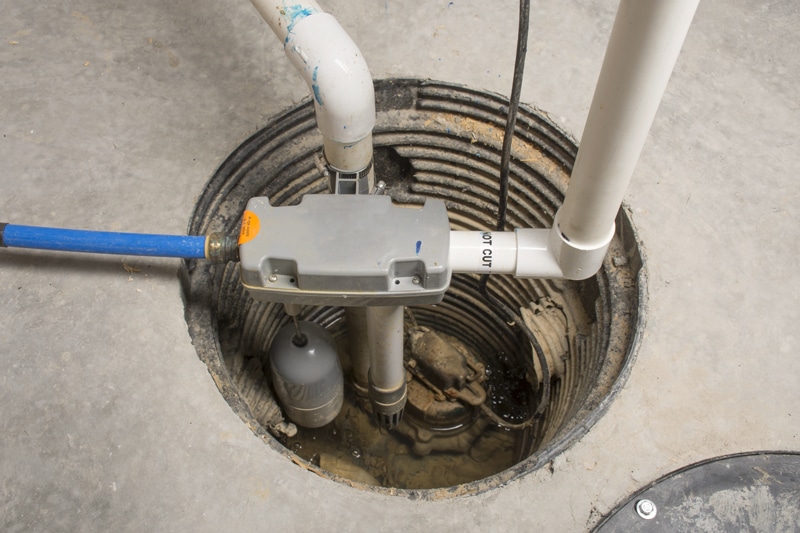
For many homeowners, the basement is an integral part of their living space, whether it’s used as a storage area, a recreational room, or additional living quarters. However, basements are also the most prone areas of your home to flooding. A sump pump can be a highly effective solution for keeping your basement dry and protecting your home from the costly damages caused by water. In this blog, we’ll explore the importance of sump pumps in basement flood prevention and how they can offer peace of mind to homeowners. And for those in San Diego, Happy Plumbing is your expert for sump pump installation and maintenance.
1. Understanding Sump Pumps
A sump pump is a device installed in the lowest part of your basement, designed to pump out water that has accumulated in a sump basin. Typically, water flows into the sump basin through drains or by natural water migration through the soil. The pump then redirects the water away from your home, keeping your basement dry. The U.S. Department of Housing and Urban Development provides guidelines on the proper installation and maintenance of sump pumps.
2. The Benefits of Sump Pumps
Prevents Flooding Damage
The primary benefit of a sump pump is its ability to prevent basement flooding, a common issue in many homes, especially in areas with high water tables or heavy rainfall. By promptly removing water, sump pumps prevent water from rising to a level where it can cause damage to your home’s structure and your belongings.Most large businesses tend to offer water and these are not limited only to restaurants. Educational institutions, nail salons, and even barbershops need effective water filtration systems for their clients and staff.
Reduces Mold and Mildew
A damp basement is an ideal breeding ground for mold and mildew, which can not only damage your home but also pose health risks. By keeping your basement dry, sump pumps help prevent the growth of these fungi, ensuring a healthier living environment. The Centers for Disease Control and Prevention (CDC) highlights the health concerns associated with mold and how to control it.
Increases Property Value
Homes with waterproofing systems, including sump pumps, are more attractive to potential buyers. A sump pump can increase the value of your property by providing an effective solution to one of the most common and challenging issues homeowners face – basement flooding.
3. Choosing the Right Sump Pump
When selecting a sump pump, consider factors such as the size of your basement, the typical water accumulation rate, and the pump’s capacity and power source. There are two primary types of sump pumps: submersible pumps and pedestal pumps. Submersible pumps are quieter and tend to have a longer lifespan, while pedestal pumps are easier to service and more affordable. Consulting with a professional plumber can help you choose the most suitable option for your needs.
4. Regular Maintenance is Key
To ensure the reliability of your sump pump, regular maintenance is crucial. This includes checking the pump’s operation, cleaning the sump pit, and inspecting the discharge line to ensure it’s not blocked or frozen. Regular maintenance helps extend the lifespan of your pump and guarantees that it will function correctly when you need it most.
5. Backup Systems for Added Security
For added protection, especially in areas with frequent power outages or extreme weather conditions, consider installing a battery backup system or a water-powered backup pump. These systems can provide continuous operation even when the primary power source fails, ensuring that your basement remains dry during critical times.
Happy Plumbing in San Diego
A sump pump is an essential component for any homeowner looking to protect their basement from flooding. By preventing water damage, reducing the risk of mold and mildew, and increasing property value, a sump pump offers a reliable solution to one of the most daunting challenges homeowners face. For expert sump pump installation and maintenance in San Diego, Happy Plumbing is here to provide top-quality service and ensure your home stays dry and comfortable. Trust Happy Plumbing to safeguard your basement from flooding with the best sump pump solutions tailored to your needs.
